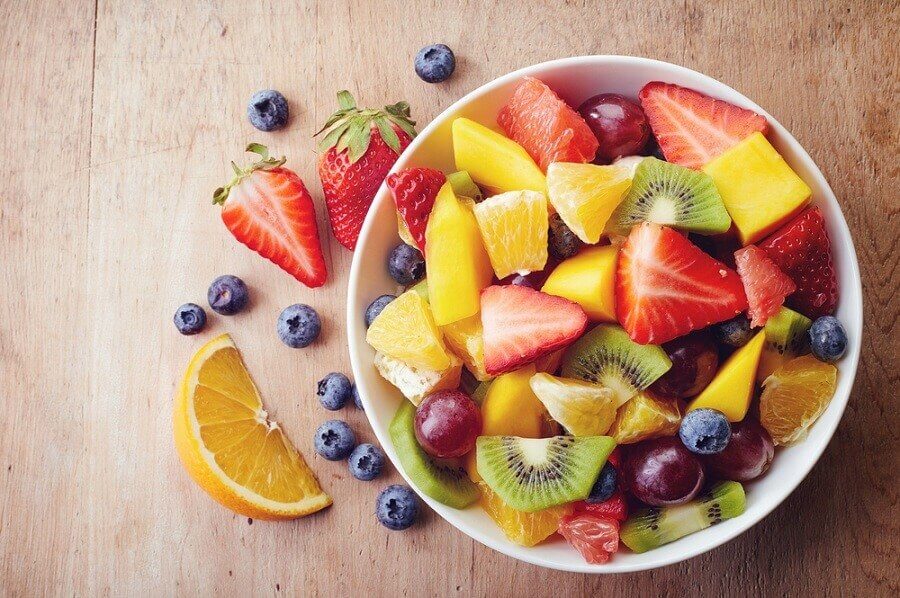What to Eat while Breastfeeding


Reviewed and approved by the doctor Nelton Ramos
What you eat while breastfeeding is crucial to keeping your baby healthy, and providing the vitamins and minerals your body needs to function properly.
Many mothers are worried about what to eat when they’re breastfeeding.
Some moms also want to lose the weight they accumulated during pregnancy as soon as possible while also maintaining good health.
If you share these concerns, this article will bring you very good news: you’re allowed to consume a large amount of food while breastfeeding.
You’ll also see how easy it is to gradually lose weight while eating healthy.
What to eat while breastfeeding
When a mother is breastfeeding, her body needs a large number of nutrients to maintain optimal health. This is because so much of her vitamin stock is going to her baby.
During this stage, a mother’s diet must focus on quality rather than quantity.
When a mother is breastfeeding, she feels more hungry. But with adequate and healthy food, she can retain her health and regain her pre-pregnancy weight.
To achieve this dual objective and to also feel satiated, specialists agree that a breastfeeding mother should eat five meals per day.
This helps maintain high energy levels and also speeds up metabolism. The result is the natural and balanced consumption of stored fat.
Now, what can you eat while breastfeeding?
We’ll talk about each type of recommended foods, including the benefits they provide and the recommended amounts to eat while breastfeeding.
Fruits and vegetables
Fruits and vegetables should be incorporated into your five meals throughout the day. Ideally, consume them fresh and according to the season.
You can eat salads or steamed vegetables. In the case of some fruits, it’s ideal to eat the skin to add fiber and more nutrients to your diet.
If you eat enough vegetables and fruits, you won’t need to supplement for folic acid and vitamins C, A, B1, B2, D and E.

Dairy products
Dairy intake ranks second in the list of recommendations for breastfeeding mothers. They must be present in three to four of the five daily meals.
When you consume dairy, you not only help with the formation of your baby’s bones, but also provide your own body with vitamins B1, B2, A and D.
Note: it’s important to choose low-fat options.
Fish
Including fish in your diet while breastfeeding is important because it contributes iodine and, when this passes to the baby, it will stimulate his cerebral development.
It’s therefore recommended to consume fish three or four times a week.
Blue fish are recommended, such as sardines, anchovies or mackerel. In addition to the iodine contribution, fish offers omega 3 fatty acids, which also benefit neurological development.
Lean meats and eggs
It’s also recommended to consume lean meats, which are composed of muscle fibers and no fat.
Some examples of this type of meat include chicken and turkey breast, rabbit and some cuts of beef. Remember to eat them without the skin, and bake or grill them to avoid grease.
With respect to eggs, you can eat them three times a week as a good source of protein.
While breastfeeding, the mother’s body needs a large number of nutrients to maintain optimal health.
Water
It’s important for mothers to drink at least 2 liters of water per day because breast milk is 87 percent water.
Also, oxytocin, a hormone generated by breastfeeding, stimulates the sensation of dehydration.

Good fats
We call “good fats” those that come from dried fruit, avocado, extra virgin olive oil or so-called blue fish.
Fats that don’t provide any nutrients, such as mayonnaise, palm oil or refined oils, should be avoided. The consumption of “good fats” should also be reduced.
As you can see, a breastfeeding diet includes multiple options. Best of all, they’re included in almost all the top diets for weight loss.
As a final tip, remember that pastries and fried food provide calories and no nutrients.
Also, don’t eat products with excess dyes, chemicals, alcohol or caffeine when you’re breastfeeding.
What you eat while breastfeeding is crucial to keeping your baby healthy, and providing the vitamins and minerals your body needs to function properly.
Many mothers are worried about what to eat when they’re breastfeeding.
Some moms also want to lose the weight they accumulated during pregnancy as soon as possible while also maintaining good health.
If you share these concerns, this article will bring you very good news: you’re allowed to consume a large amount of food while breastfeeding.
You’ll also see how easy it is to gradually lose weight while eating healthy.
What to eat while breastfeeding
When a mother is breastfeeding, her body needs a large number of nutrients to maintain optimal health. This is because so much of her vitamin stock is going to her baby.
During this stage, a mother’s diet must focus on quality rather than quantity.
When a mother is breastfeeding, she feels more hungry. But with adequate and healthy food, she can retain her health and regain her pre-pregnancy weight.
To achieve this dual objective and to also feel satiated, specialists agree that a breastfeeding mother should eat five meals per day.
This helps maintain high energy levels and also speeds up metabolism. The result is the natural and balanced consumption of stored fat.
Now, what can you eat while breastfeeding?
We’ll talk about each type of recommended foods, including the benefits they provide and the recommended amounts to eat while breastfeeding.
Fruits and vegetables
Fruits and vegetables should be incorporated into your five meals throughout the day. Ideally, consume them fresh and according to the season.
You can eat salads or steamed vegetables. In the case of some fruits, it’s ideal to eat the skin to add fiber and more nutrients to your diet.
If you eat enough vegetables and fruits, you won’t need to supplement for folic acid and vitamins C, A, B1, B2, D and E.

Dairy products
Dairy intake ranks second in the list of recommendations for breastfeeding mothers. They must be present in three to four of the five daily meals.
When you consume dairy, you not only help with the formation of your baby’s bones, but also provide your own body with vitamins B1, B2, A and D.
Note: it’s important to choose low-fat options.
Fish
Including fish in your diet while breastfeeding is important because it contributes iodine and, when this passes to the baby, it will stimulate his cerebral development.
It’s therefore recommended to consume fish three or four times a week.
Blue fish are recommended, such as sardines, anchovies or mackerel. In addition to the iodine contribution, fish offers omega 3 fatty acids, which also benefit neurological development.
Lean meats and eggs
It’s also recommended to consume lean meats, which are composed of muscle fibers and no fat.
Some examples of this type of meat include chicken and turkey breast, rabbit and some cuts of beef. Remember to eat them without the skin, and bake or grill them to avoid grease.
With respect to eggs, you can eat them three times a week as a good source of protein.
While breastfeeding, the mother’s body needs a large number of nutrients to maintain optimal health.
Water
It’s important for mothers to drink at least 2 liters of water per day because breast milk is 87 percent water.
Also, oxytocin, a hormone generated by breastfeeding, stimulates the sensation of dehydration.

Good fats
We call “good fats” those that come from dried fruit, avocado, extra virgin olive oil or so-called blue fish.
Fats that don’t provide any nutrients, such as mayonnaise, palm oil or refined oils, should be avoided. The consumption of “good fats” should also be reduced.
As you can see, a breastfeeding diet includes multiple options. Best of all, they’re included in almost all the top diets for weight loss.
As a final tip, remember that pastries and fried food provide calories and no nutrients.
Also, don’t eat products with excess dyes, chemicals, alcohol or caffeine when you’re breastfeeding.
All cited sources were thoroughly reviewed by our team to ensure their quality, reliability, currency, and validity. The bibliography of this article was considered reliable and of academic or scientific accuracy.
- Barriuso, L., Miguel, M. D., & Sánchez, M. (2007, December). Lactancia materna: factor de salud. Recuerdo histórico. In Anales del sistema sanitario de Navarra (Vol. 30, No. 3, pp. 383-391). Gobierno de Navarra. Departamento de Salud. http://scielo.isciii.es/scielo.php?script=sci_arttext&pid=S1137-66272007000500007
- Figueroa, R. (1996). Nutrición durante el embarazo y la lactancia. Revista Peruana de Ginecología y Obstetricia.
- González Méndez, I., & Pileta Romero, B. (2002). Lactancia materna. Revista Cubana de Enfermería, 18(1), 15-22. http://scielo.sld.cu/scielo.php?script=sci_arttext&pid=S0864-03192002000100003
- Segura, S. A., Ansótegui, J. A., & Marta Díaz-Gómez, N. (2016). La importancia de la nutrición materna durante la lactancia, ¿necesitan las madres lactantes suplementos nutricionales? Anales de Pediatria. https://doi.org/10.1016/j.anpedi.2015.07.024
This text is provided for informational purposes only and does not replace consultation with a professional. If in doubt, consult your specialist.








